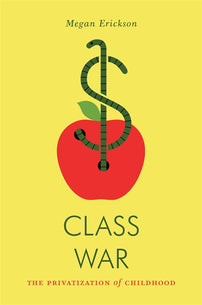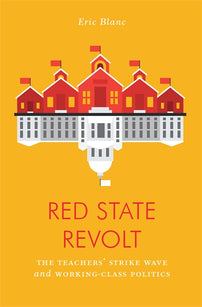Eton or Charterhouse? on the Labour Campaign Against Private Schools
Could Boris Johnson be the last Prime Minister to be educated at Eton? Sol Gamsu makes the case for the integration and abolition of private schools and argues that the tensions and complexity of this issue goes to the heart of creating a socialist strategy for structural change

Eton or Charterhouse? Our next prime minister is guaranteed to have attended one of the most expensive and exclusive private schools in the country. As Gary Younge wrote in a recent Guardian article, the crises we are living through are the direct result of this insular, exclusionary and divisive system of elite education that has been churning our Prime Ministers for centuries. How has this come to be the norm, and why have we allowed our politics to be determined for so long by a narrow political elite whose idea of educational diversity is limited to their choice of Oxford college?
For decades this has been an accepted part of politics, and yet what criticism there has been of these institutions has never lead to any serious political change. We know it is unfair to allow an educational system where the best resources are given to the most privileged, but when it comes education policy the existence of these schools is never called into question.
The left may not be able to choose who will be the next prime minister, but we can decide to fight for a politics that will abolish these elitist forms of education. In launching a Labour Campaign Against Private Schools, we are putting front and centre the political demand to abolish and integrate private schools.
[book-strip index="1" style="buy"]The last Labour manifesto committed the party to charging VAT on private school fees, but if we are serious about challenging elitism and inequality in education we need to go much further. Some of these schools are extraordinarily wealthy. Eton holds over £436 million in investments and property, at the upper end of the scale charging schools for local business rates (as they do in Scotland), and removing charitable status or charging VAT will not seriously damage the financial position of these schools. To use a sporting analogy, if you want to seriously reform the football league you cannot leave the finances of the top four clubs untouched.
Instead, what is needed for a more just education system is the full integration and abolition of private schools. This may not mean their full closure in every case; many could stay open as comprehensive schools or have their facilities used as further education colleges, adult learning centres or local libraries. Schools would have to be reviewed to look at local demand and there would need to participatory processes within a framework or set of principles to guide the possible outcomes. Some of the most elite schools like Eton could even become museums. Like Versailles, Eton could become a monument to the extravagant elitism of past rulers. Future generations could wander through the quads and wonder “Isn’t it strange? They used to educate all their prime ministers here.”
The changes that would be involved are complex and potentially costly. A report from Oxford Economics suggests that this would cost at least £3.5 billion per year. This would be a substantial sum of money at a time when budgets will be tight, and critics have noted that this might mean less funding for other more progressive forms of schooling. However, increasing taxes for the most wealthy could help close this funding gap–if you can afford to send your kids to private school, then you can definitely afford to pay more in tax!
Yet, while acknowledging the cost is certainly important, in education we have spent decades justifying education spending with arguments about reducing inequality for those at the bottom. The funny thing is, the gap has never seemed to close. So why not spend money on education to reduce inequality from the top down?
It’s not only financial difficulties that would be thrown up by the abolition of private education. There are also substantial legal complexities and opposition that we are likely to face. One of the central pillars of the campaign is the nationalisation and democratisation of the significant endowment wealth held by the nation’s richest private schools. Yet this policy also goes to the heart of these legal issues, as has been pointed in coverage from the left and the right.
We will certainly not be able to replicate the ease with which the original legislation absolving certain school of their original charitable status was passed. It was only in the 1860s and 1870s that several acts of parliament allowed historic endowments to be used to create a hierarchical system of school for the middle classes. Rather than being free, as the medieval charitable founders had often intended, these schools were permitted to become fee-paying with only a few scholarships available on the basis of examination. This led to a situation which Marxist historian of education, Brian Simon described, thus:
by the 1890s, the middle classes of the country enjoyed a subsidised system of secondary education; one established largely at the expense of the working class
These changes took at least five acts of parliament to create and finesse (1868, 1868, 1869, 1873, 1874). What then for a policy that would seek to dismantle these entrenched privileges? We certainly won’t have an easy ride. Yet, the reason for the difficulty of such measures is that the campaign goes to the very heart of the beast: what we are aiming to do is to dismantle the state as it currently exists. Private schools are not, in reality, separate from the state. Their alumni end up in positions of power in parliament, the civil service, our cultural institutions and the private sector. There is barely a single area of public life that isn’t dominated by a privately educated few.
What’s more, their formal financial independence was possible only through the strategic intervention of the state to embed a class-based system of education. And this was not a hidden agenda as it is today; it was an openly discussed aim. As Labour is doing with new models of municipal socialism and worker ownership, in education a transformative political project of the left must seek to dismantle and re-create the educational state. And doing this without challenging the public schools is simply not possible.
[book-strip index="2" style="buy"]
The flummery of the public schools, the architecture, the accent, the way it dominates and insinuates its way into our cultural imaginary ( not even to mention how it has created the greatest regressive educational myth of our time in Harry Potter), – all of that relies on appropriated economic wealth. The great contribution of French sociologist Pierre Bourdieu was to make us see how economic capital is converted into social, cultural and symbolic capital through the education system. Public schools, like Oxbridge above them, are sites for the accumulation and conversion of capital. At the elite apex of the private sector, we must be clear that these are institutions that were created by and for the upper and upper-middle class – they belong to a system of power that the left must dismantle. Creating the detail of the policy analysis is a process that we must acknowledge is important and will take time. But this system was decades in the creating; we have to see this as a long campaign but one which will be just as transformative.
Whilst it is important to understand the historical and theoretical aims of what we are doing, we should not neglect the common sense aspects and implications of our campaign. We have been at pains to point out that this is not about blaming parents for the choices they take on their child’s behalf. There is an extensive sociological literature showing how middle-class social reproduction through schooling is embedded in a discourse that combines fears of social mixing, snobbery and substantial anxiety about the risks to their childrens’ futures. At bottom what drives much of this understandable but ultimately divisive behavior, whether that be paying school fees, moving house or using private tutors, is the desire to give children a start in life that will lead to a personally fulfilling and financially secure future. But what parent does not want that for their child? Labour has to respond to this anxiety by saying – we will give everyone not just a fair start in life but a fair future, one in which financial security, quality of life and fulfillment are a basic right, not a privilege that must be paid for.
And how would this relate to the elite Universities that take so many privately educated students? To do so, we must reframe the debate, as has been suggested by Tim Blackman away from access to a comprehensive university system. This could be a transition to a much more radical university system operating open access and with along the lines suggested by Bristol academics in the book Who are universities for? As to whether universities would accept this, there is no doubt that some vice chancellors believe in the selection and the creation of elites. But there is deep dissatisfaction at university leaders and the way higher education is being run. The arrival of Jo Grady as General Secretary of the UCU heralds the beginning of a more transformative politics and many staff in HE would support a move towards the radical use of contextual admissions as part of a deeper transformation of the sector.
The complexity and diversity of the private sector also needs to be addressed. There are a substantial number of fee-paying special and faith schools. We have talked about integration as well as abolition and it is for precisely these reasons. These proposals will need policy detail and debate something that can only happen with time. They also go to the heart of what it means to create a transformative socialist project. How can we create greater equality with reforms that are democratic and create the foundations for a new society?
In a deeper sense this is not just about private schools per se, it is about how we challenge the power of the ruling class within systems that are messy and complex and hold the affiliation and support of people for reasons that are sometimes understandable. We need this sort of strategic thinking and debating to lay the detail and the groundwork for structural transformation. This will not be quick or easy work but it is urgent and necessary.
Make no mistake, this is about abolishing and dismantling not only a system of powerful institutions but a set of values that have dominated what education is and should be. We are in the business of creating a new educational common sense. Education must cease to be about the selection of a privileged few, instead it has to be about the flourishing and empowerment of the many. Cooperation, equality and democracy should underpin the creation of a National Education Service and private schools are utterly incompatible with these values. Where state schools operate forms of formal or de facto selection then we have to challenge this too.
We are not the first to demand such action. Democratisation and nationalisation of the endowment wealth is an old political aim. In the late 19th and early 20th centuries, these political demands were closer to the surface and organisations like the Social Democratic Federation and radical education campaigners like Mary Bridges Adams, argued that the wealthy endowments of Oxford, Cambridge and “other endowed seats of learning [i.e. the private schools], were the rightful inheritance of the people”.
But we must take up the call once more. Abolishing and integrating private schools is the first step in a long and necessary struggle against elitism in out education system. To build the world we want, we have to overturn and transform the foundations of the old one. If we end up with Boris Johnson as our Prime Minister next week, let’s make him the last Old Etonian Prime Minister the UK ever has.
Sol Gamsu is a sociologist and a geographer of education at Durham University.
[book-strip index="3" style="display"]



